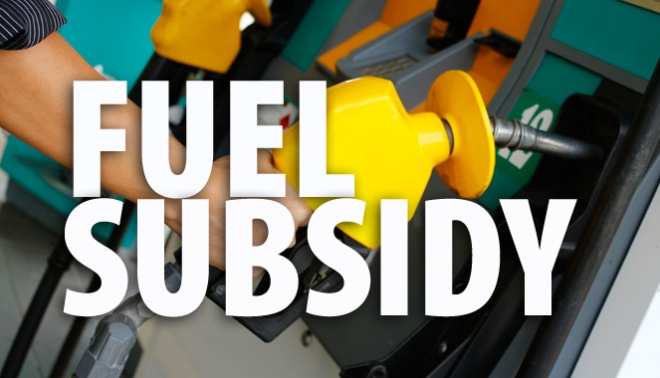National
Fuel Subsidy: The Good and Bad

By Sola Omoniyi, Lagos
The subsidy is a financial support provided by the government or other organizations to businesses, industries, or individuals to reduce the cost of production of a particular product or service. It is usually provided to boost the production and competitiveness of a particular industry, promote economic growth, and provide essential goods and services at lower prices to consumers. The subsidy is often provided in the form of cash, tax breaks, grants, or other financial incentives.
Fuel subsidy is a financial support provided by governments to reduce the cost of purchasing fuel for consumers. It is usually given to reduce the price of gasoline, diesel, kerosene, or other petroleum products to make them more affordable for consumers. Fuel subsidy is provided to reduce the burden of high fuel prices on consumers and to ensure that essential services such as transportation, heating, and electricity remain affordable. The subsidy is often paid for by the government through taxes or other financial means. However, fuel subsidies are often criticized for being inefficient, costly, and harmful to the environment as they encourage the overuse of fossil fuels and discourage the development of renewable energy sources.
Removing fuel subsidies have several advantages, including:
1. Reducing Government Spending: Fuel subsidies are a strain on the government’s budget as they require a significant amount of funding. Removing fuel subsidies can reduce government spending, which frees up money that can be used for other important initiatives such as healthcare, education, and infrastructure development.
2. Encouraging Economic Efficiency: Fuel subsidies distort market prices and create an artificial demand for fuel, which can lead to market inefficiencies. Removing fuel subsidies allow market prices to reflect the true cost of production, which encourages economic efficiency and promotes competition.
3. Encouraging Investment: Removing fuel subsidies can encourage investment in alternative energy sources such as renewable energy, which reduces the dependency on fossil fuels and helps to mitigate the effects of climate change.
4. Reducing Corruption: Fuel subsidies can foster corruption as they create opportunities for profiteering and rent-seeking. Eliminating fuel subsidies can reduce the chances of corruption in the fuel sector.
5. Encouraging Conservation: By removing fuel subsidies, consumers are encouraged to conserve fuel and use it more efficiently. This promotes environmental sustainability and reduces carbon emissions.
Removing fuel subsidies have several disadvantages, including:
1. Increased Cost for Consumers: Removing the fuel subsidies can increase the price of fuel, which directly impacts the consumers’ expenses. The increase in fuel prices can lead to inflation and a general increase in the cost of living.
2. Transportation Cost: Transportation costs would increase with the removal of fuel subsidies, which can adversely affect businesses that rely on transportation, especially those with a large fleet of vehicles. This can lead to an increase in the prices of goods and services as companies try to pass on the increased transportation cost to consumers.
3. Impact on the Poor: The removal of fuel subsidies can have a significant impact on poor and vulnerable populations. As they are the ones most affected by the increase in fuel prices, it can lead to an increase in poverty and a reduction in their standard of living.
4. Political Instability: Removing fuel subsidies can lead to political instability and unrest. It is a sensitive issue and can lead to protests and strikes by labour unions and other groups that rely on fuel subsidies. This can lead to disruptions of economic activities and affect the stability of the government.













